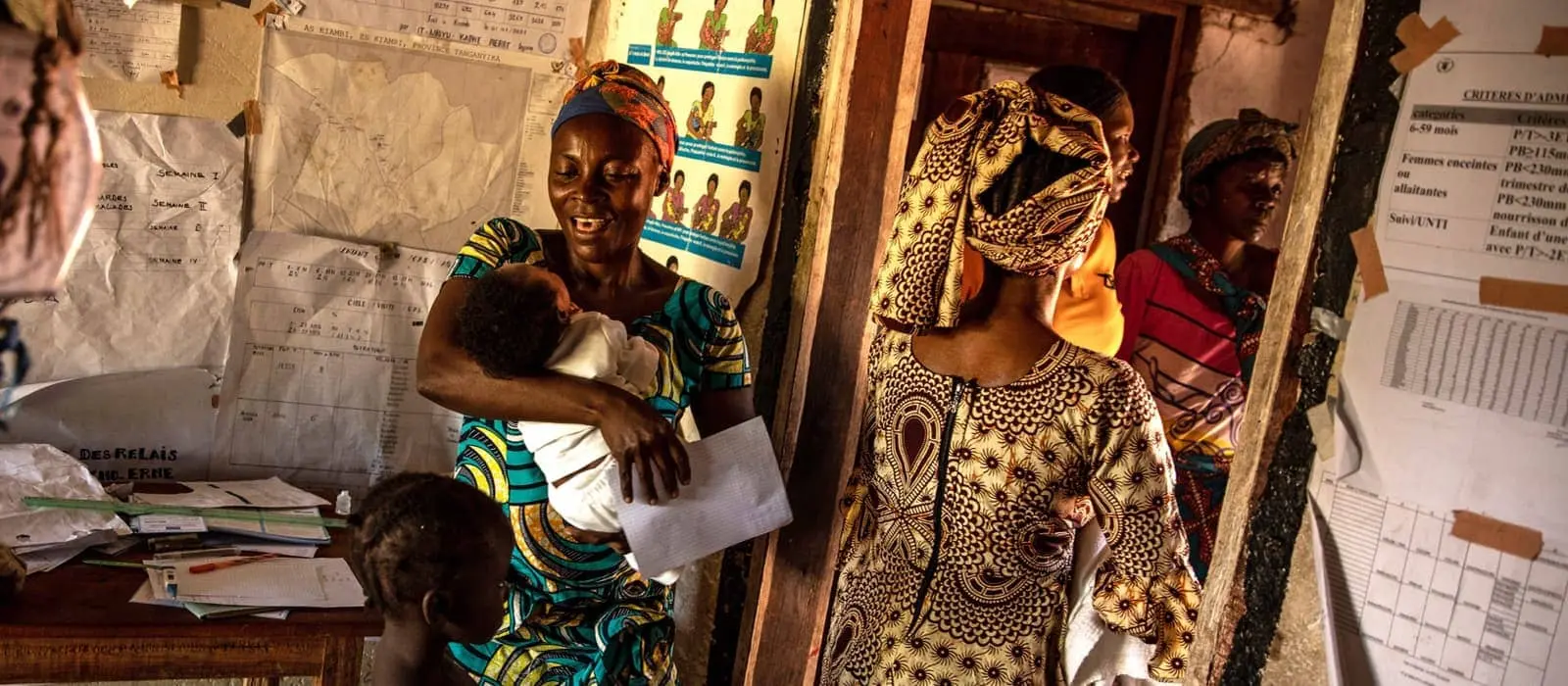At Concern, we work with millions of mothers every year, many of whom do the impossible to provide a better life for themselves and their families. While Mother’s Day happens around the world on different days, to mark the US holiday, we’d like to introduce you to a few candidates for world’s best mom (apart from your own, of course).
Dhaka, Bangladesh: Falljan
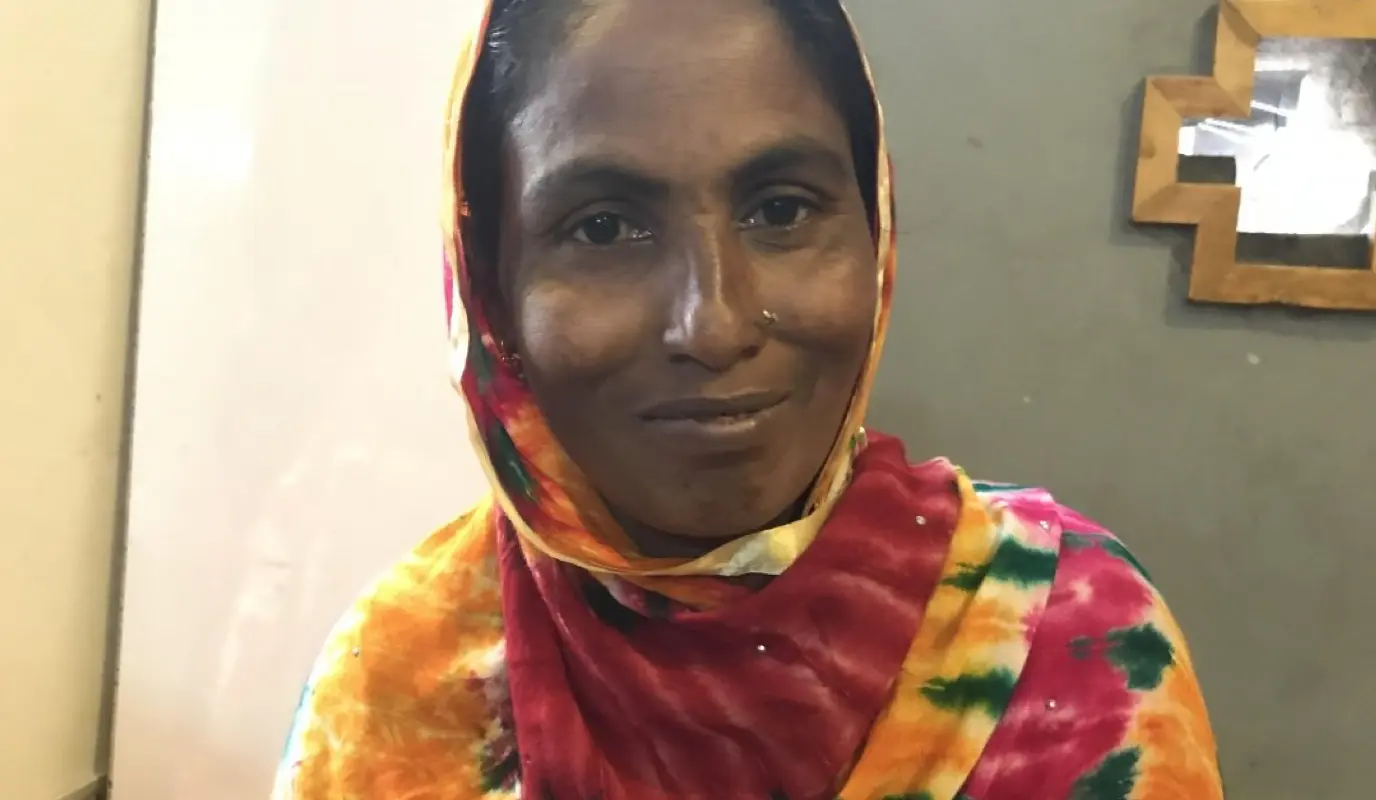
Wrapped in a vivid orange, red, and green shawl, Falljan (45) enjoyed living as a housewife in Bulla, Bangladesh. Then her husband left her for another woman. On her own with no income or support from her family — and two children to take care of — she found herself in an unbreakable cycle of poverty.
She wound up in the capital city of Dhaka, living and sleeping in the country’s largest railway station, Kamlapur. It was there that she gave birth to her third child. She lived there for four years before coming into one of the seven pavement dweller centers that Concern runs in Dhaka. Apart from providing livelihood training and grants, basic medical services, daycare and adult education, the pavement dweller programs also give the users of the centers an address and, in the case of many, allows them to be able to get birth certificates for their children.
Falljan now works in a hotel, preparing and mixing spices for the chefs, knowing that her children are well looked after at the center’s daycare and school programs. “I can work now knowing my children are safe,” she beams. “That makes all the difference.”
Diffa, Niger: Mama Saodeko
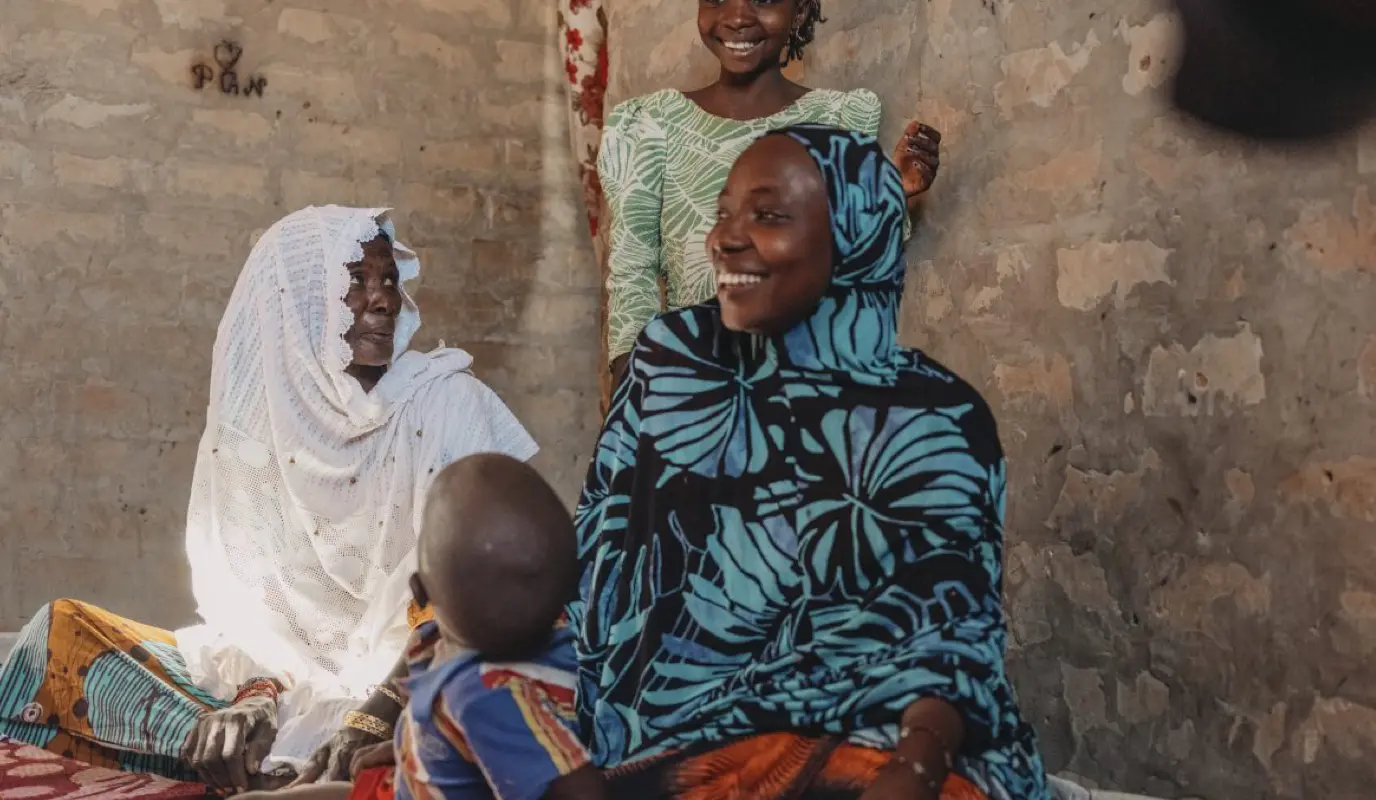
Despite some personal upheaval — including a divorce and moving back to her home village of Diffa — mother-of-five Mama Saodeko Moussa Zouéra has plenty to smile about. She was able to reunite with her extended family, including her mother Aminala (in the white shawl). They live on a site that belongs to her father and her two school-aged children are enjoying one of Concern’s education programs.
Cox’s Bazar, Bangladesh: Reshma*

Mother of six Reshma* was one of the hundreds of thousands of Rohingya who fled violence in the Rakhine State, arriving safely across the border in Bangladesh. “I had heard stories about what the military were doing, but I hadn’t experienced any of that until one day they came to our village and started to burn homes,” she recalls. “They destroyed my house. We all fled together — up to 500 of us. We walked for twelve days to the river. I felt terrible.”
Reshma’s sister lived in a different village, and she wasn’t sure if she was safe or not. Fate intervened, and the two reunited on their way to the border. They swam across the Naf River and wound up in Cox’s Bazar. Tragically, Reshma’s sister died in the Rohingya refugee community, due to complications during childbirth. Reshma adopted her newborn niece, Tahira*, but the newborn was soon diagnosed with acute malnutrition.
“After I adopted Tahira, I had to rely on powdered milk for her. But it was difficult to afford. She became malnourished and was admitted to the hospital. After that, she was admitted to Concern’s nutrition center.” Concern provided ready-to-use therapeutic food (RUTF) in the form of Plumpy’Nut, as well as monitoring as part of our Community Management of Acute Malnutrition program. “The help we’re getting from Concern means that the baby’s health is improving. Her appetite is increasing and she is gaining weight,” Reshma said after a few checkups.
M’Poko, Central African Republic: Nadine and Hermine
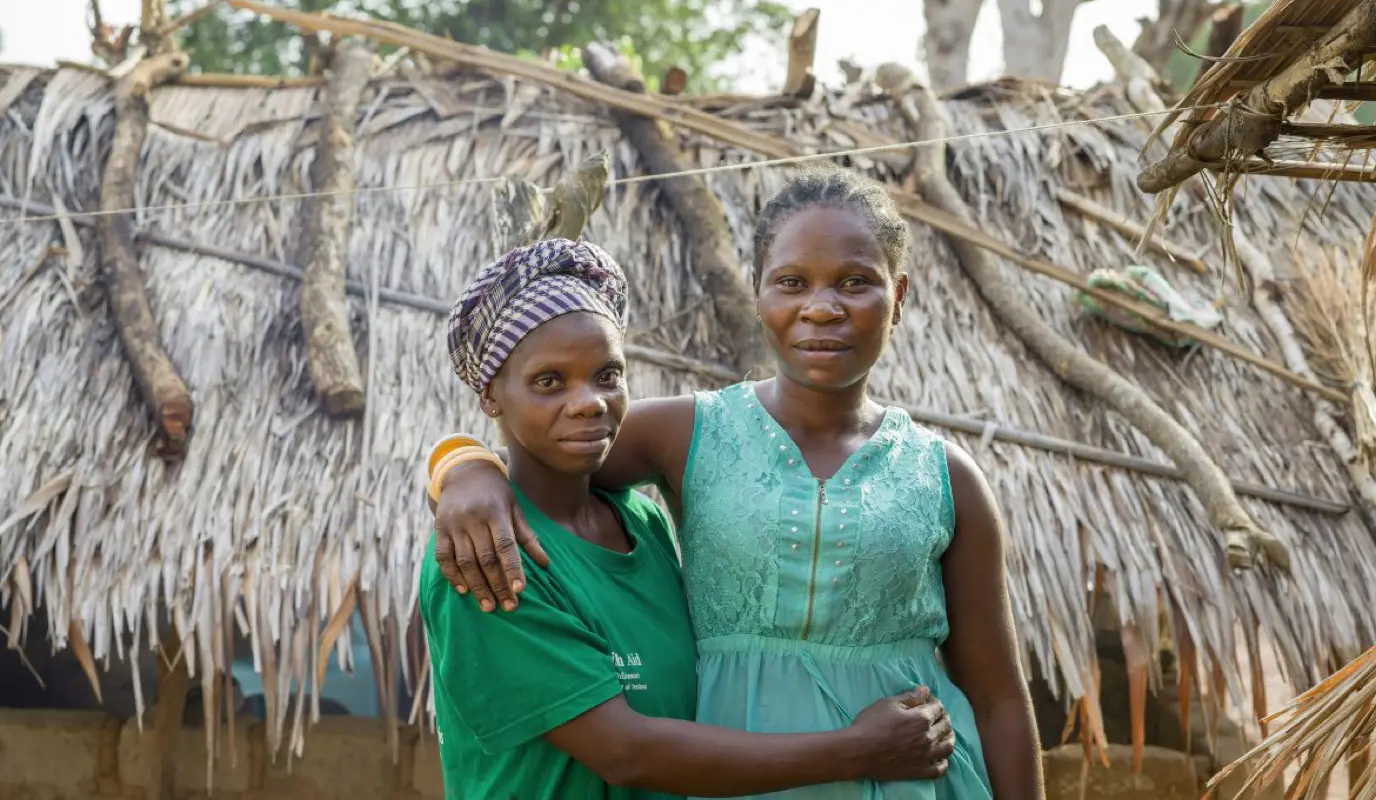
Prolonged crisis has made the Central African Republic one of the worst countries to become a mother: Health services in the area are unreliable, often closed, frequently run out of essential medicines, and lack qualified staff and equipment.
Concern supports a number of clinics, providing them with therapeutic and supplementary food, medicine, equipment and upgraded facilities, as well as training community health volunteers who conduct village health and nutrition screenings. These “Mamans Lumières,” or “lead mothers” are instrumental in delivering messaging on maternal and newborn health, breastfeeding, and hygiene. Nadine Doko is one of those Mamans Lumières, and one of her favorite clients is her friend and neighbor Hermine Kounougoue. “I have learned a lot from her,” Hermine says of Nadine. “Much has changed in my life. I think that all my children are healthy because of the advice I’ve received from her.”
Cibitoke, Burundi: Francine
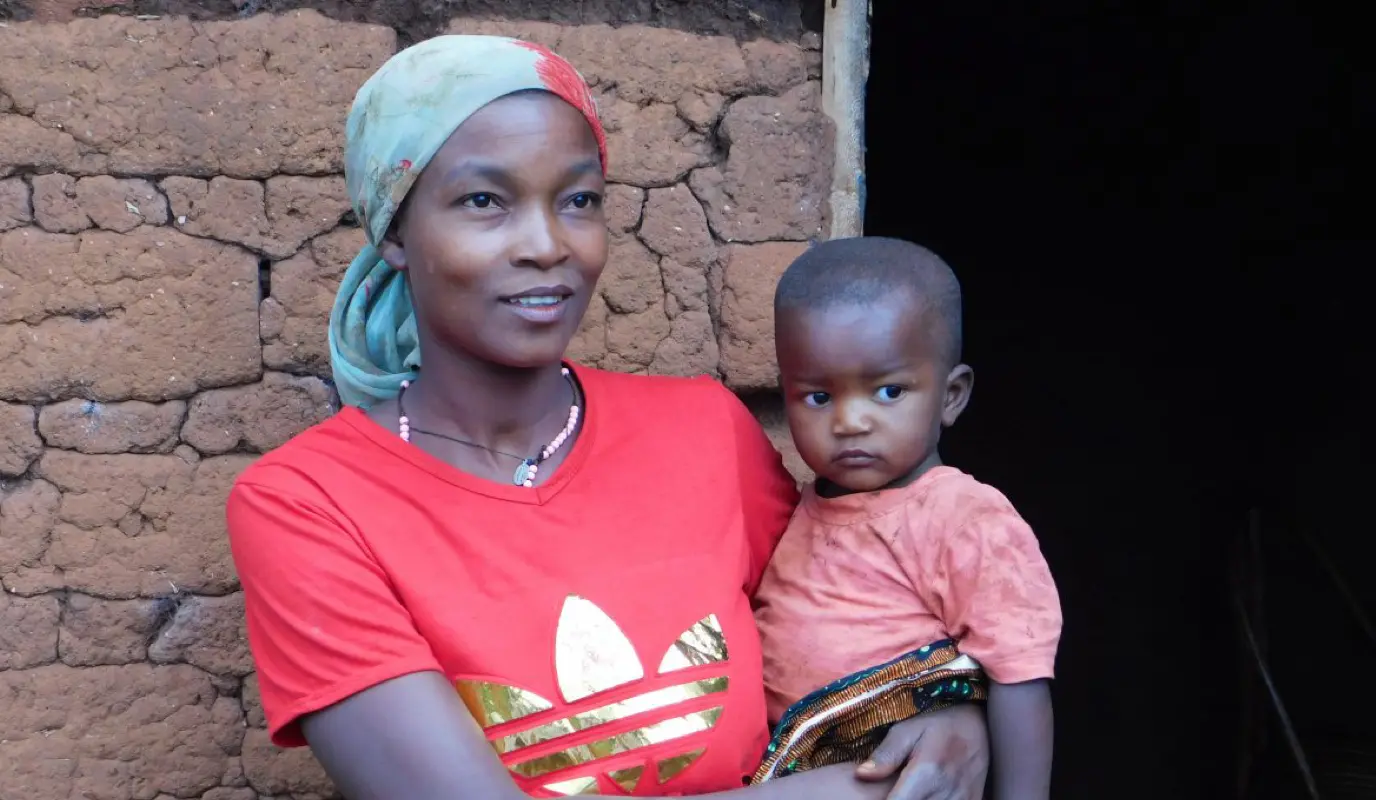
A mother of five and a farmer, Francine was also elected as a community Care Group Volunteer five years ago. She had to suspend activities for two years due to a lack of support for capacity-building, but a grant from UKAID Match and a program implemented by Concern allowed her to resume activities in 2020 — and not a moment too soon given the pandemic.
“I think I am a dynamic person, able to conduct the home visits and follow up on the progress made by the household’s members. This is why my community has chosen me. They trust me, as they know I am an honest person” says Francine with smiling eyes when asked about her election as a Care Group Volunteer.
Since the project started, Francine has noticed several changes in her community. “Cases of malnutrition have reduced. Also, households know how to prepare a balanced meal. Many children sleep under the mosquito net. I see more people using tippy-taps and washing their hands, and less open-air defecation. Pregnant and lactating women know the importance of ante- and post-natal care and what to eat when pregnant.”
Manono Territory, Democratic Republic of Congo: Leonie
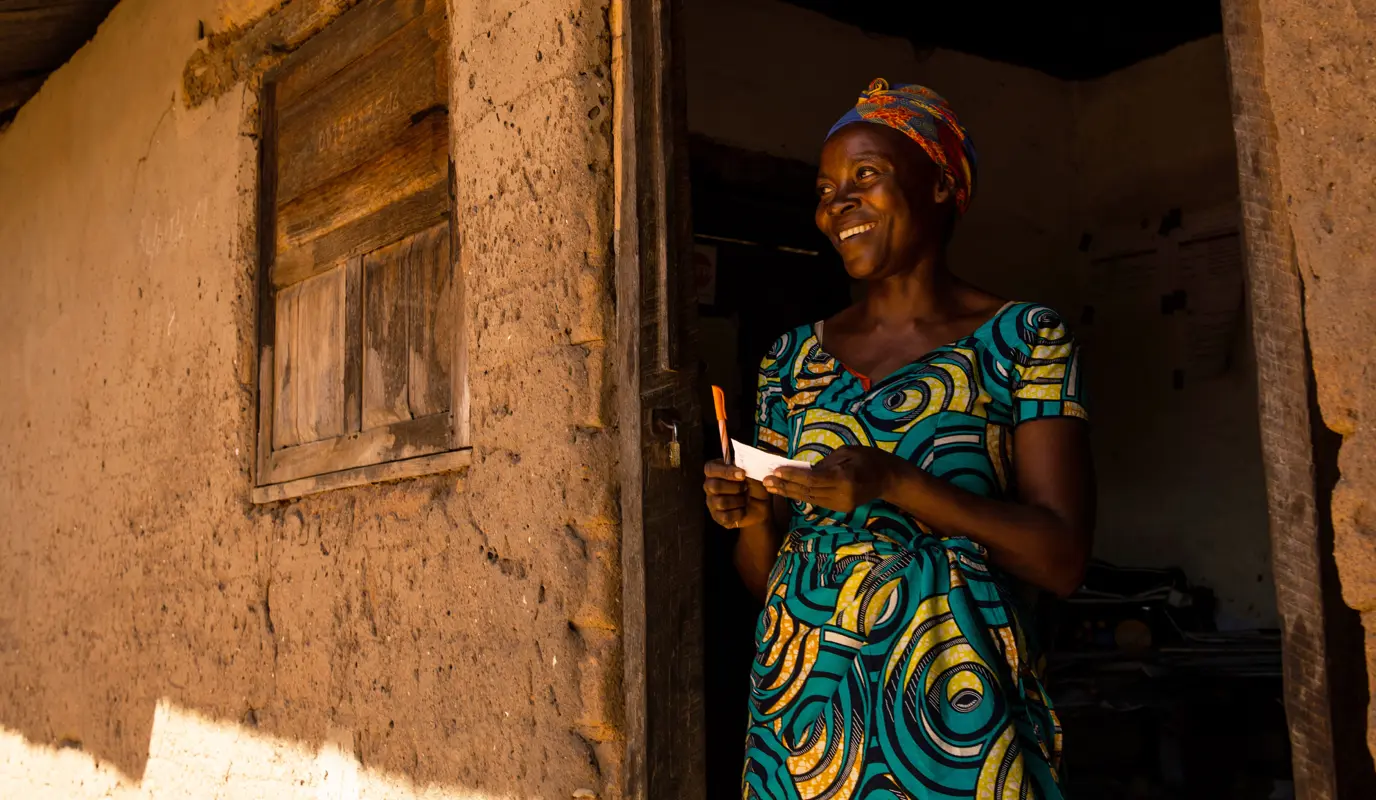
Leonie Kamono is not only a mother of eight, but also a nurse who works at the Kiambi Health Center in Manono Territory, providing services for the town of Kiambi and the wider region. “Mother” isn’t simply a role, it’s a calling.
“I consult pregnant women, assist them with childbirth, act as a midwife, and do consultations,” Leonie explains. Working so closely with the mothers of Kiambi means she has had much experience with severe acute malnutrition, constantly interacting and caring for children who have SAM or are at extreme risk of developing it. “If they are less than the benchmark, we take care of them,” she says, before adding the critical caveat: “If we have the emergency food in stock. If we do not have any, we [can only] advise the mother to feed the child more.”
Nsanje District, Malawi: Anes
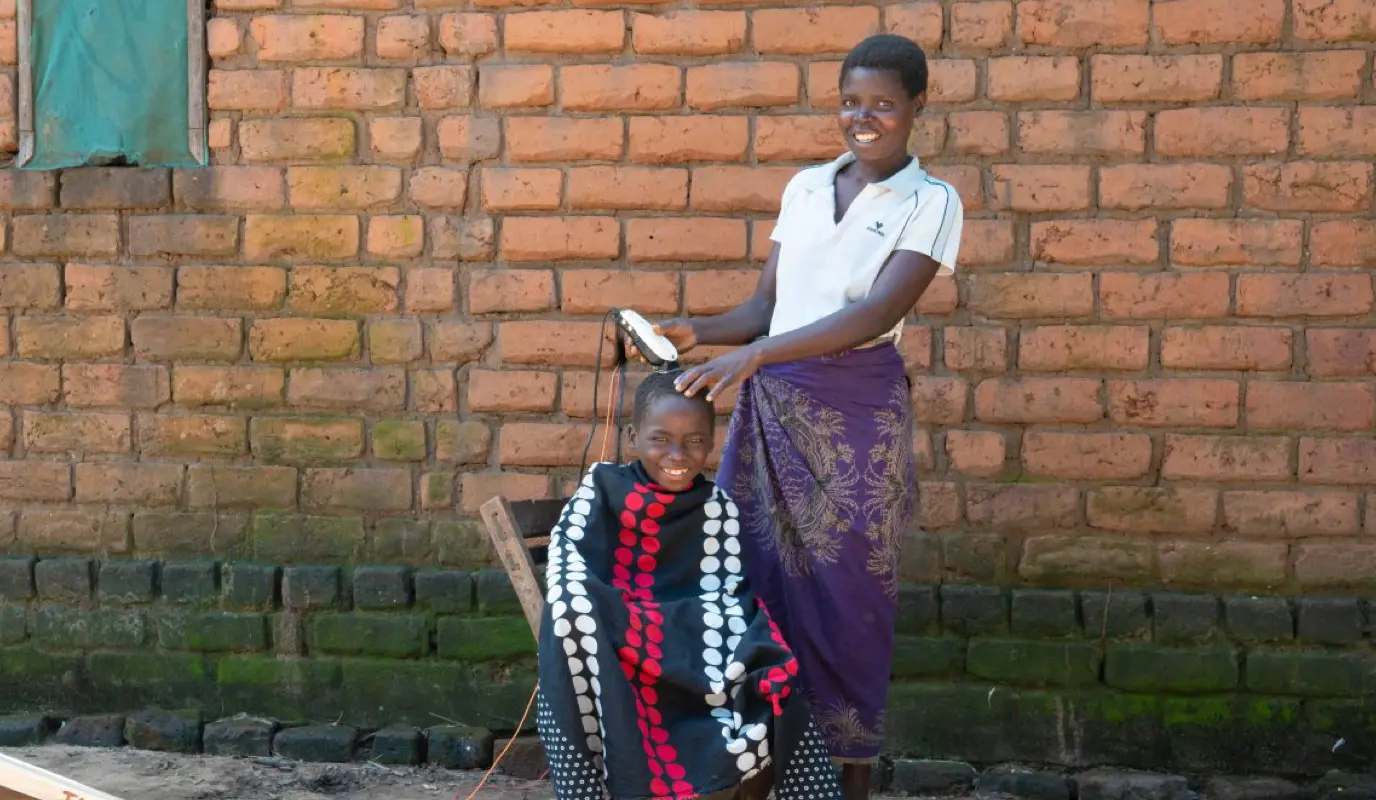
A participant in Concern Malawi’s Graduation program, Anes James was able to start a barber business, buying a solar panel and equipment with her startup grant from Concern. The solar panel keeps her electric razors buzzing and income flowing in — although her son, 10-year-old Chabuka, gets a freebie.
Aweil, South Sudan: Chagawa*
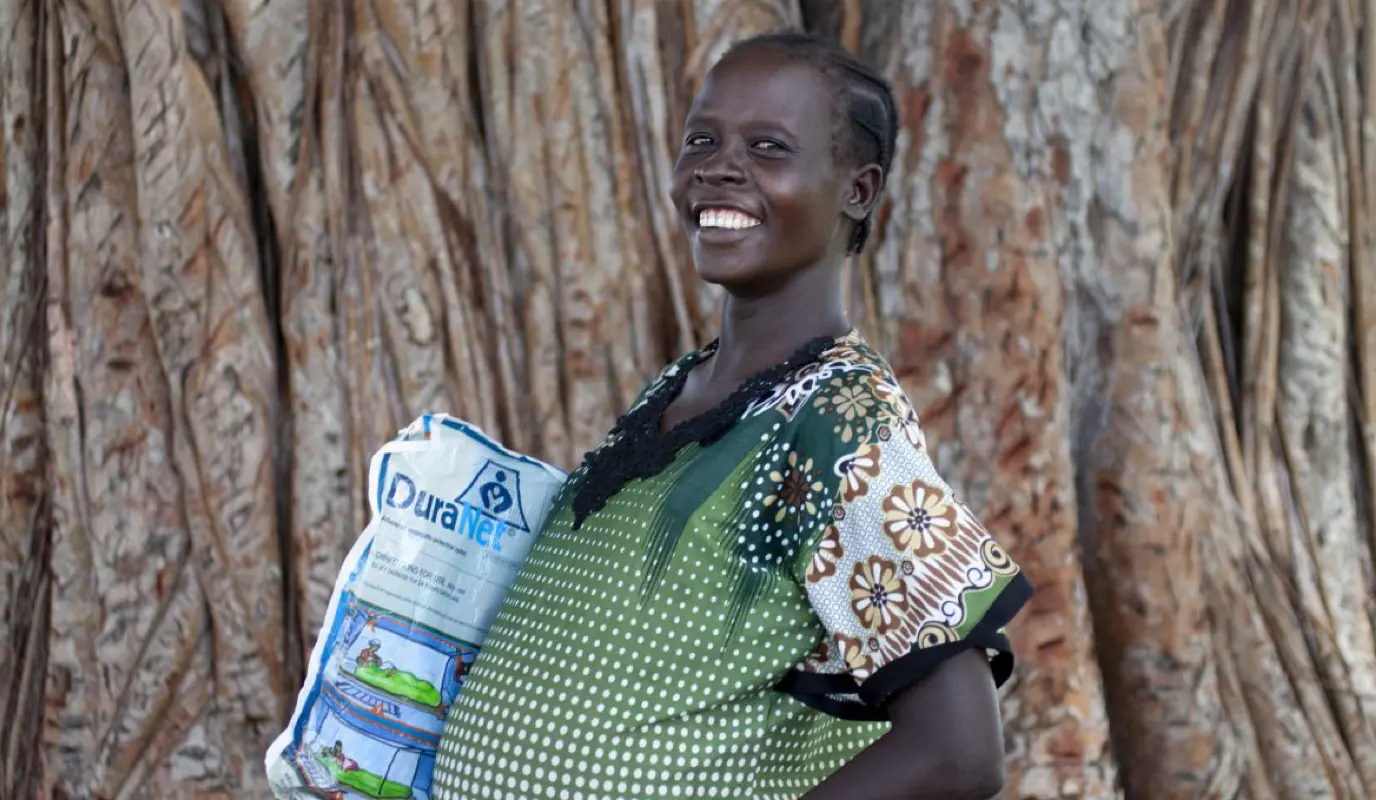
Mother-to-be Chagawa* had back and stomach pain, and almost miscarried, but she went to the Concern-led clinic. “I wasn’t worried, I had medical people taking care of me!”
There, she learned the importance of regular checkups and was scheduled for future visits. She was also counseled on what type of food to eat and to avoid any heavy work. She came back to the clinic when she began experiencing labor pains. “Concern has really changed my life. I now know what to do if I have a problem. But this is my last child. I’m tired!”
*Some names changed for security reasons

